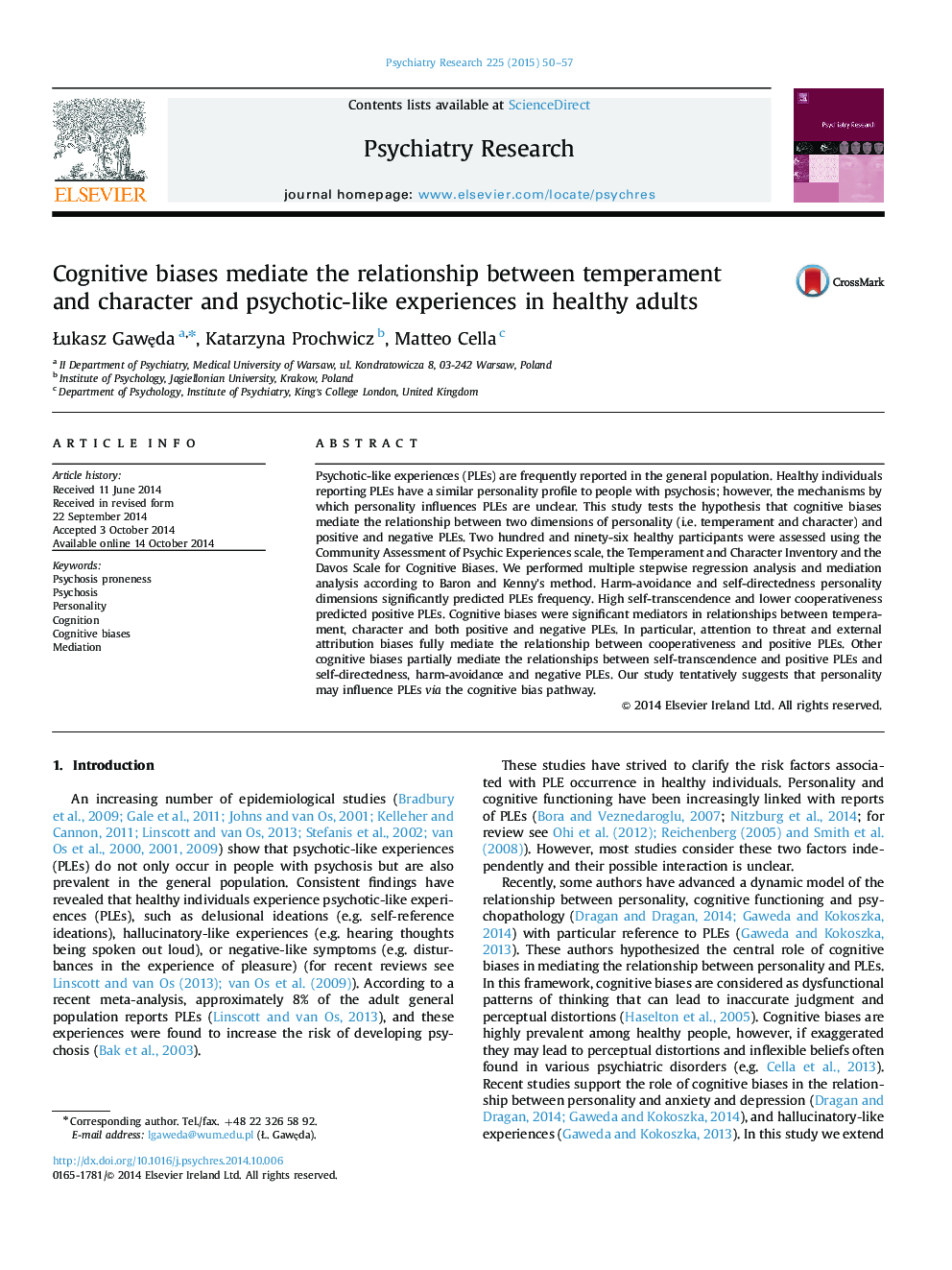| کد مقاله | کد نشریه | سال انتشار | مقاله انگلیسی | نسخه تمام متن |
|---|---|---|---|---|
| 332079 | 545628 | 2015 | 8 صفحه PDF | دانلود رایگان |
• The hypothesis of mediating role of cognitive biases in the relationship between personality and psychotic-like experiences (PLEs) in healthy individuals was tested.
• Temperament and character dimensions were related to positive and negative PLEs.
• Cognitive biases were found to be significant mediators between temperament, character for both positive and negative PLEs.
• Cognitive biases may be a mechanism responsible for the relationships between personality and PLEs.
Psychotic-like experiences (PLEs) are frequently reported in the general population. Healthy individuals reporting PLEs have a similar personality profile to people with psychosis; however, the mechanisms by which personality influences PLEs are unclear. This study tests the hypothesis that cognitive biases mediate the relationship between two dimensions of personality (i.e. temperament and character) and positive and negative PLEs. Two hundred and ninety-six healthy participants were assessed using the Community Assessment of Psychic Experiences scale, the Temperament and Character Inventory and the Davos Scale for Cognitive Biases. We performed multiple stepwise regression analysis and mediation analysis according to Baron and Kenny׳s method. Harm-avoidance and self-directedness personality dimensions significantly predicted PLEs frequency. High self-transcendence and lower cooperativeness predicted positive PLEs. Cognitive biases were significant mediators in relationships between temperament, character and both positive and negative PLEs. In particular, attention to threat and external attribution biases fully mediate the relationship between cooperativeness and positive PLEs. Other cognitive biases partially mediate the relationships between self-transcendence and positive PLEs and self-directedness, harm-avoidance and negative PLEs. Our study tentatively suggests that personality may influence PLEs via the cognitive bias pathway.
Journal: Psychiatry Research - Volume 225, Issues 1–2, 30 January 2015, Pages 50–57
